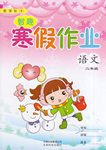题目内容
BBC can be ________ in our areas.
- A.picked up
- B.picked
- C.picked out
- D.picked over

 智趣寒假作业云南科技出版社系列答案
智趣寒假作业云南科技出版社系列答案
Disease, poverty, hate, love—Charles Dickens’ stories opened his readers eyes to the most important themes of his age. Two hundred years on, his stories still speak volumes across the world, proving that Dickens’ legacy(遗产) was far greater than just “great literature”
February 7 marks the 200th anniversary of the writer’s birthday. To mark this date, BBC writer Alex Hudson listed six things Dickens gave the modern world. Let’s take a look at two of them.
A white Christmas
Dickens is described as “the man who invented Christmas”—not the religious festival, but the cultural aspects that we associate with the festive season today. In the early 19th century, Christmas was barely worth mentioning, according to critic and writer Leigh Hunt. The committee which ran the Conservative Party even held ordinary business meetings on Christmas Day – unthinkable in the West nowadays, when everyone but the most necessary workers takes at least three days off.
Many people believe that Dickens’ popular descriptions of the festive period became a blueprint for generations to come. In his classic novel, A Christmas Carol, he not only put forward the idea of snow at Christmas, but also painted a picture of glowing warmth –“ home enjoyments, affections and hopes”.
In his biography of Dickens, Peter Ackroyd wrote: “ Dickens can be said to have almost single-handedly created the modern idea of Christmas.”
“Dickensian” poverty
Dickens was one of the first to take an honest look at the underclass and the poor of Victorian (the period during British Queen Victoria’s reign from 1837 to 1901) London.
He helped popularize the term “red tape” to describe situations where people in power use needless amounts of bureaucracy(官僚作风) in a way that particularly hurts the weaker and poorer members of society.
“Dickensian” has now become a powerful word for describing an unacceptable level of poverty. In 2009, when the president of the Association of Teachers and Lecturers in the UK wanted to talk about deprivation in some areas of Britain, she did not use words like “terrible” or “horrific”, but rather described it as “life mirroring the times of Dickens”.
【小题1】What is the main idea of the article?
| A.An introduction to Charles Dickens’ classic novels. |
| B.Charles dickens’ impact on the world. |
| C.Charles Dickens’ amazing characters. |
| D.Why Charles Dickens is popular across the world. |
| A.Because he created the religious festival. |
| B.Because many of his novels have something to do with Christmas. |
| C.Because one of his novels helped to shape Christmas celebrations. |
| D.Because he was the first man to have proposed celebrating Christmas. |
| A.rules or procedures that are required to accomplish a task |
| B.a situation in which poor members of society are hurt. |
| C.conflict between people in power and weaker people |
| D.pointlessly time-consuming official procedures |
Disease, poverty, hate, love—Charles Dickens’ stories opened his readers eyes to the most important themes of his age. Two hundred years on, his stories still speak volumes across the world, proving that Dickens’ legacy(遗产) was far greater than just “great literature”
February 7 marks the 200th anniversary of the writer’s birthday. To mark this date, BBC writer Alex Hudson listed six things Dickens gave the modern world. Let’s take a look at two of them.
A white Christmas
Dickens is described as “the man who invented Christmas”—not the religious festival, but the cultural aspects that we associate with the festive season today. In the early 19th century, Christmas was barely worth mentioning, according to critic and writer Leigh Hunt. The committee which ran the Conservative Party even held ordinary business meetings on Christmas Day – unthinkable in the West nowadays, when everyone but the most necessary workers takes at least three days off.
Many people believe that Dickens’ popular descriptions of the festive period became a blueprint for generations to come. In his classic novel, A Christmas Carol, he not only put forward the idea of snow at Christmas, but also painted a picture of glowing warmth –“ home enjoyments, affections and hopes”.
In his biography of Dickens, Peter Ackroyd wrote: “ Dickens can be said to have almost single-handedly created the modern idea of Christmas.”
“Dickensian” poverty
Dickens was one of the first to take an honest look at the underclass and the poor of Victorian (the period during British Queen Victoria’s reign from 1837 to 1901) London.
He helped popularize the term “red tape” to describe situations where people in power use needless amounts of bureaucracy(官僚作风) in a way that particularly hurts the weaker and poorer members of society.
“Dickensian” has now become a powerful word for describing an unacceptable level of poverty. In 2009, when the president of the Association of Teachers and Lecturers in the UK wanted to talk about deprivation in some areas of Britain, she did not use words like “terrible” or “horrific”, but rather described it as “life mirroring the times of Dickens”.
【小题1】What is the main idea of the article?
| A.An introduction to Charles Dickens’ classic novels. |
| B.Charles dickens’ impact on the world. |
| C.Charles Dickens’ amazing characters. |
| D.Why Charles Dickens is popular across the world. |
| A.Because he created the religious festival. |
| B.Because many of his novels have something to do with Christmas. |
| C.Because one of his novels helped to shape Christmas celebrations. |
| D.Because he was the first man to have proposed celebrating Christmas. |
| A.rules or procedures that are required to accomplish a task |
| B.a situation in which poor members of society are hurt. |
| C.conflict between people in power and weaker people |
| D.pointlessly time-consuming official procedures |